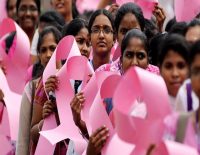Health ministry issues guidelines for leftover samples, biomedical waste

The Union health ministry has issued guidelines for ethical use of ‘leftover, de-identified and anonymous’ samples generated from a diagnostic or surgical procedure on the patients for commercial use. These specimens include organs, parts of organs, cells, tissues, cell products such as blood, blood products (even positive for eHBsAG/HCV/HIV/Syphilis and expired blood), urine, saliva, DNA/RNA, hair, nail clippings, or any other
The source for these specimens may be patients, autopsy specimens, abandoned wastes, tissue banks, IVF clinics and organ donation centers among others, the health ministry said recently.
After these samples have undergone the required clinical and laboratory testing for the patient, there are large quantities of leftover samples that may remain available in the hospitals.
These samples may be referred to as a biomedical waste, sometimes may be a biohazard, and require appropriate methods for disposal, the ministry said.
The hospital itself may have no added value for these samples, nor the capacity to store these samples after the provision of patient care. Such samples are usually discarded as hospital waste, it stated.
According to the ‘Guidelines for Ethical use of Leftover de-identified/ Anonymous Samples for Commercial Purpose’ issued recently, these leftover samples if de-identified or anonymous can serve as a precious resource for research and development activities to develop diagnostics, advance innovations, or for the development of kits, identify specific disease markers, or determine relevant health parameters and other such purposes and may have huge value.







